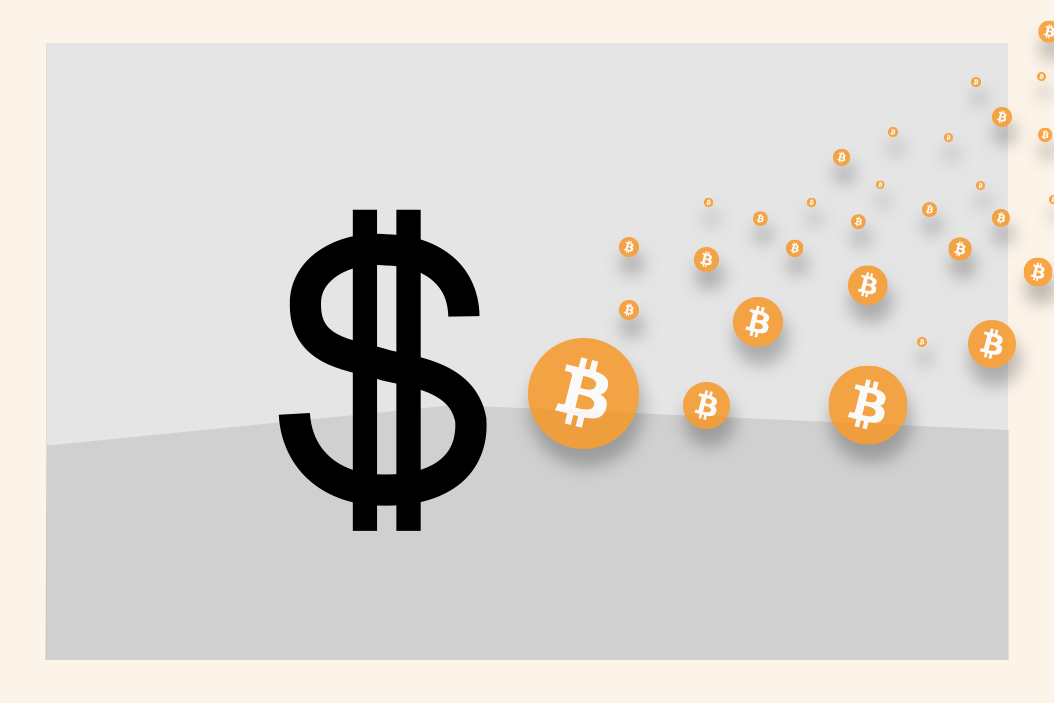March 29, 2021
Visa announced on Monday it'll be the first major electronic payments platform to accept some cryptocurrency to settle transactions on its network. The move is the latest sign of growing trust in such virtual currencies by mainstream financial institutions worldwide — and a development that presents big challenges for governments around the world.
But first, what is cryptocurrency? It's essentially like electronic cash — a computer file stored in a digital wallet that has value, and therefore can be used to buy goods and services from sellers that accept it as payment. Instead of going through a bank, transactions are settled on a virtual ledger or blockchain, which records all exchanges. You can acquire cryptocurrency by purchasing it with traditional money based on its market demand, or "mining" — a complex method that entails sharing computing power to help the blockchain process more and faster payments.
Now back to the politics. Indeed, for one of the world's top two electronic payment systems to accept currency not issued by governments is a very big deal for governments, which throughout most of history have enjoyed a monopoly on minting money. For states and especially central bankers, the seemingly unstoppable rise of cryptocurrency is a much bigger problem than Elon Musk saying you can pay for a Tesla with Bitcoin, the world's most well-known cryptocurrency.
Most governments fear that widespread virtual currency use will undercut their power to control the supply of money. (This explains the very strong pushback by the US Congress to Facebook's ultimately failed launch of its own cryptocurrency Libra less than two years ago.) While paper dollars, euros, yuan and the like are not going away anytime soon, cryptocurrency is clearly becoming more popular — with an estimated 106 million users worldwide. The question is then, what can governments do about it?
On the one hand, governments do have some legitimate reasons to want to ban or at least regulate cryptocurrencies. One is that the value of some cryptocurrencies has risen so much, so fast recently that experts fear another tech-driven bubble like the 2000 dot-com crisis, which sparked a mild recession in the US. Another is that cryptocurrency facilitates anonymous and untraceable transactions, so it can be used by criminals to buy and sell illegal goods and services as well as scam people.
Cryptocurrency mining can also be bad for the environment. The activity is so energy-intensive — and now widespread — that it currently consumes about 121.36 terawatt-hours of energy a year, more than the entire country of Argentina. With a lot of the mining taking place in low-income nations that get cheap electricity from fossil fuels, it can be as harmful as traditional mining. (Interestingly, much of the cryptocurrency mined in countries with weak environmental laws ends up in the wallets of buyers in green-minded wealthy nations, so regulation in the latter pushes more mining to the former.)
On the other hand, some governments are warming up to cryptocurrencies… as long as they are in charge. A good example is China, which has been trying for years to launch its digital yuan to compete with the US dollar, the world's dominant paper currency. Central banks issuing their own sovereign digital currencies would allow states to track every single transaction, something that appeals to both democratic nations to ensure tax compliance and to authoritarian ones for surveillance purposes.
Cryptocurrency is also a good tool for a small group of countries to bypass international EU and US sanctions. Russia and Venezuela have both launched their own digital currencies with that goal in mind, while Iran is rumored to be building an army of state-controlled miners to allow local companies to make payments circumventing the US-based SWIFT platform (which even money launderers rely on).
Bottom line. While cryptocurrency won't replace traditional money in the near term, or even ever, its increased acceptance presents massive challenges that governments can no longer put off dealing with.From Your Site Articles
- Hard Numbers: Thais call out king, Americans mostly pro-jab ... ›
- What We're Watching: India halts vaccine exports, principle vs profit ... ›
- Cryptocurrency going mainstream but EU & US regulators face challenges - GZERO Media ›
- What is Coinbase, the first major cryptocurrency company to go public? - GZERO Media ›
- Bukele's Bitcoin gamble in El Salvador ›
- Do cryptocurrencies undermine US sanctions? - GZERO Media ›
- Crypto fans ignore its ups and downs - GZERO Media ›
- Why Big Tech companies are like “digital nation states” - GZERO Media ›
More For You
Ukraine's President Volodymyr Zelenskiy, Finland's President Alexander Stubb, Estonia’s Prime Minister, President of the European Commission Ursula von der Leyen and other European leaders visit memorial to fallen Ukrainian defenders at the Independent Square on the fourth anniversary of Russia's full-scale invasion, in Kyiv, Ukraine February 24, 2026.
Ukrainian Presidential Press Service/Handout via REUTERS
Somewhere in the Donbas region, Ukrainian soldier Artem Bondarenko says he hasn’t slept through the night in months as he defends Eastern Ukraine.
Most Popular
Members of the special units of the National Guard and the Secretaria de Seguridad Ciudadana stand guard in front of the Fiscalia General de la Republica, where the investigation into the operation in which Nemesio Oseguera Cervantes, alias "El Mencho", founder and leading head of the Cartel de Jalisco Nueva, was killed, is underway.
Félix Márquez/dpa via Reuters Connect
- YouTube
In this Quick Take, Ian Bremmer warns that US military strikes on Iran are “looking increasingly imminent” as diplomacy appears to stall.
© 2025 GZERO Media. All Rights Reserved | A Eurasia Group media company.
